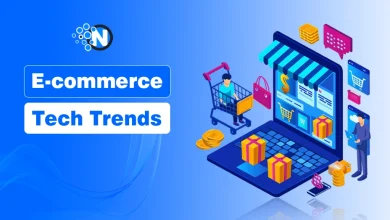
<strong><strong>🔑 Key Takeaways</strong></strong>
📌Niche Focus Is Your Superpower: Don’t try to be everything to everyone. A well-defined niche builds authority, trust, and higher conversion rates.
📌Mobile Optimization Is Non-Negotiable: With most shoppers browsing and buying on their phones, your mobile experience must be fast, intuitive, and friction-free.
📌SEO Is Your Long-Term Growth Engine: SEO builds sustainable traffic. Invest in content, optimize your product pages, and get backlinks to grow visibility organically.
📌Community Building Is the Secret Sauce: Build a brand that connects emotionally, and you’ll create loyal customers who stick around and spread the word.
There’s one thing I’ve learned in my 13 years of helping businesses grow online: small retailers have big potential, but only if they play smart.
I’ve worked with family-based businesses, niche product brands, and solo entrepreneurs who turned their side hustle into six-figure stores. The secret? Not a massive budget. Not a viral product. Just smart, focused e-commerce strategies based on the latest trends that work in the real world.
So if you’re a small retailer looking to compete with the big guys, this one’s for you.
In this blog post, I have mentioned the ten strategies I’ve seen transform small online stores into thriving digital brands.
10 E-Commerce Strategies for Small Retailers
Below, I will highlight the most effective tactics to enable small retailers to outpace the competition and reap substantial financial benefits.

1. Niche Down and Own It
Trying to sell everything to everyone is a fast track to burnout. Instead, focus on a specific niche; the more targeted, the better to sell more.
One of my clients went from selling “home decor” to “minimalist wall art for small apartments.” Their conversion rate doubled in 3 months. Why? Because they spoke directly to a specific audience with a clear need.
When you niche down, you’re not limiting your market; you’re optimizing your message for clarity. You become an expert in that domain, and customers trust specialists more than generalists.
2. Embrace the Omnichannel Approach
You must embrace an omnichannel marketing approach to reach more customers and receive more sales. This strategy involves leveraging multiple sales channels and providing the same services to authorize your credibility and consistent behavior. Small retailers can achieve this through the following methods.
- E-Commerce Website: You can create a website to showcase your brand on the web and reach more customers across the globe.
- Social Platforms: Social media is the best platform to let you reach millions of customers without making enormous efforts. Facebook and Instagram have evolved recently, becoming one of the best marketing hubs for small retailers.
- Click and Collect Service: By adopting the above two platforms, you can help customers order their favorite items. Further, click and collect service confirms their orders and allows them to pick them up readily from your shop.
3. Optimize Your Product Pages
Your product page is your digital salesperson. Make it count and optimize it properly with everything that entices the potential customers. You should:
- Use high-quality images (multiple angles, real-life shots)
- Write benefit-driven descriptions that solve problems
- Add trust signals like reviews, guarantees, and return policies
👉 Pro Tip: Use tools like Hotjar or Microsoft Clarity to see where users drop off and adjust accordingly. A slight change in layout or wording can lead to a big jump in conversions.
4. Go Mobile-First
Smartphones have taken the world by storm, and e-commerce is no exception. According to OuterBox, over 70% of e-commerce traffic comes from mobile devices.
That’s why you must understand and implement mobile optimization to provide the best user experience. If your e-commerce site isn’t mobile-optimized, you’re missing out on a larger share of the audience.
Use reliable web hosting for e-commerce to ensure your pages load quickly (under 3 seconds), design buttons that are thumb-friendly, and ensure a seamless and secure checkout process. In this way, you can influence potential buyers and attract them to purchase your products.
5. Streamlined Checkout Process
Most e-commerce stores have a sturdy checkout procedure, resulting in higher cart abandonment. There could be several reasons for this approach. However, it is non-functional for small retailers as it deters buyers from approaching them next.
So, you should look forward to implementing a straightforward checkout process to help clients make payments without difficulty.
6. Effective Inventory Management
Inventory management is another critical aspect small retailers must take care of. As they are not well-established, there could be chances of stockouts and other issues. That’s why you need to focus on publishing the products’ details on your website and social channels.
Only put the information on available items. You can also integrate inventory tracking software to perform this critical operation more effectively and precisely. Besides, eco-friendly practices such as sustainable packaging and shipping options are the best ways of maintaining fulfilment.
7. Data Security and Privacy
It is essential for small retailers to extract larger customer data to understand their requirements and work through ways to meet their needs. With this, it is also essential to ensure data security and safety. Otherwise, you may face severe legal fines, bans, or poor credibility. Ultimately, you will end up with your plans.
Many high-end encryption tools are available in the market, promising to provide enhanced security for the necessary information. So, you must consider leveraging the best one as per your requirements.
8. Invest in SEO for Long-Term Growth
Paid ads are great, but investing in SEO is a long game for sustained presence in SERPs. It drives organic traffic that compounds over time, helping you grow online.
- Optimize product titles, meta descriptions, and alt tags
- Start a blog targeting long-tail keywords to share informative & helpful content
- Get backlinks from relevant sites and directories to build authority
A small skincare brand I worked with now gets over 50% of its traffic from organic search. They rank for terms like “natural acne remedies” and “vegan face wash”. Those visitors are ready to buy.
👉 Pro Tip: Use keyword-rich alt text for all product images. It improves accessibility and boosts your chances of ranking in image search.
9. Build Community, Not Just Customers
People don’t just buy products, they buy into brands.
- Share your story and values
- Engage on social media (respond to comments, go live)
- Create loyalty programs and referral incentives
Brands that build community have higher retention and stronger word-of-mouth. One of my clients started a Facebook group for their customers to share updates and start conversations, and it became their most powerful marketing channel.
10. Analytics and Performance Tracking
Small retailers can’t take their e-commerce store to the ultimate level of success without following essential analytics and tracking their performance. On the other hand, leveraging their potential enables them to work in the desired direction and direct your business more productively.
A/B testing and web analytics tools are the best performance-tracking methods, helping you get ahead of the competition. Additionally, you must take the insights into action to assess the effectiveness of your current e-commerce strategies.
👉 Pro Tip: Set up conversion goals in Google Analytics to track which pages or products actually lead to sales—not just clicks.
Conclusion: Small Retailers, Big Possibilities
Over the past 13 years, I’ve had the privilege of working with many small retailers, some just starting out, others ready to scale. There’s one thing I’ve seen time and again: you don’t need a massive budget to win in e-commerce; you need a smart strategy and consistent execution.
Success doesn’t come from doing everything; it comes from doing the right things well. Apply these insights to your store, and watch your brand evolve from a small shop to a serious competitor.




